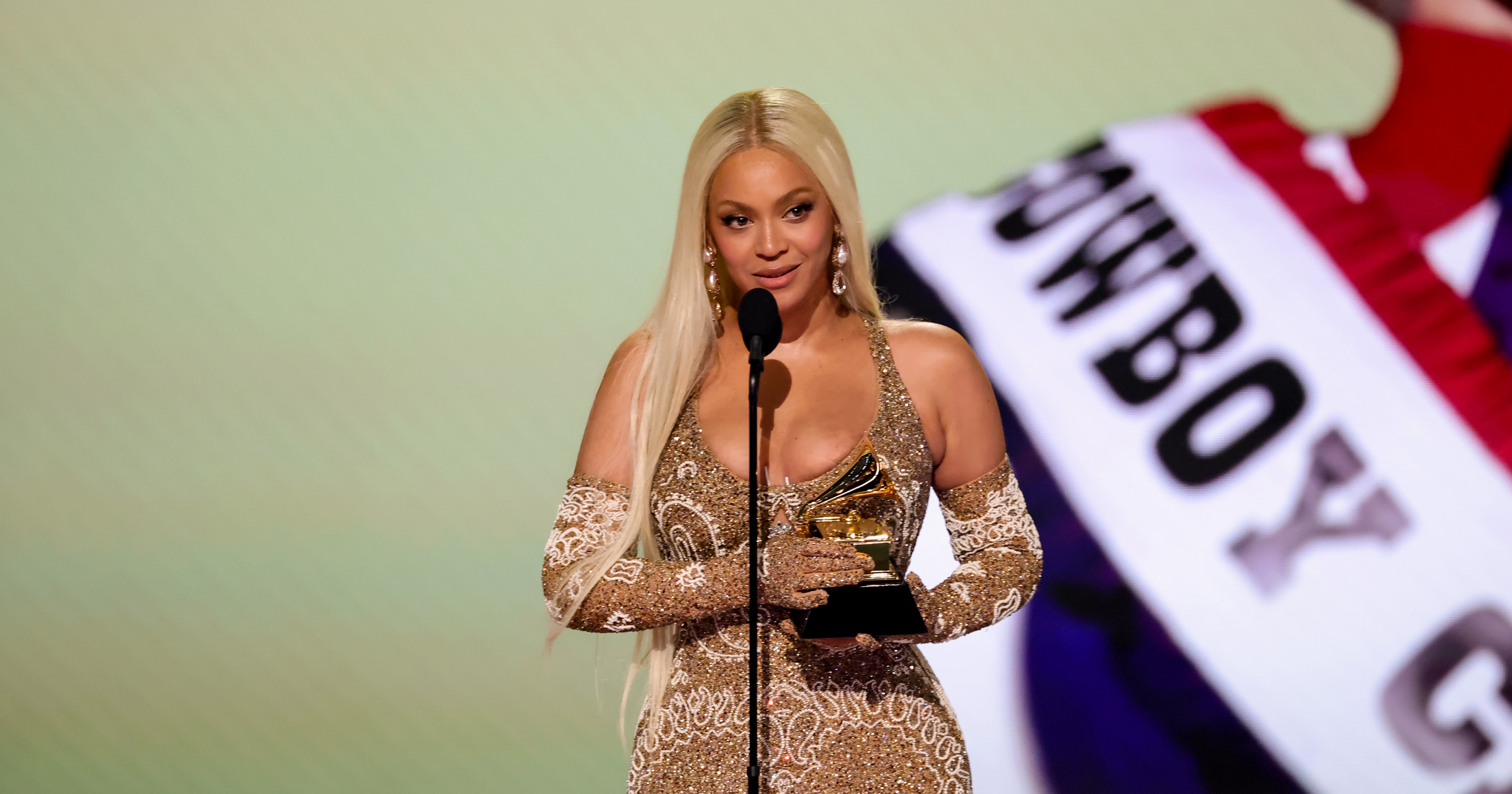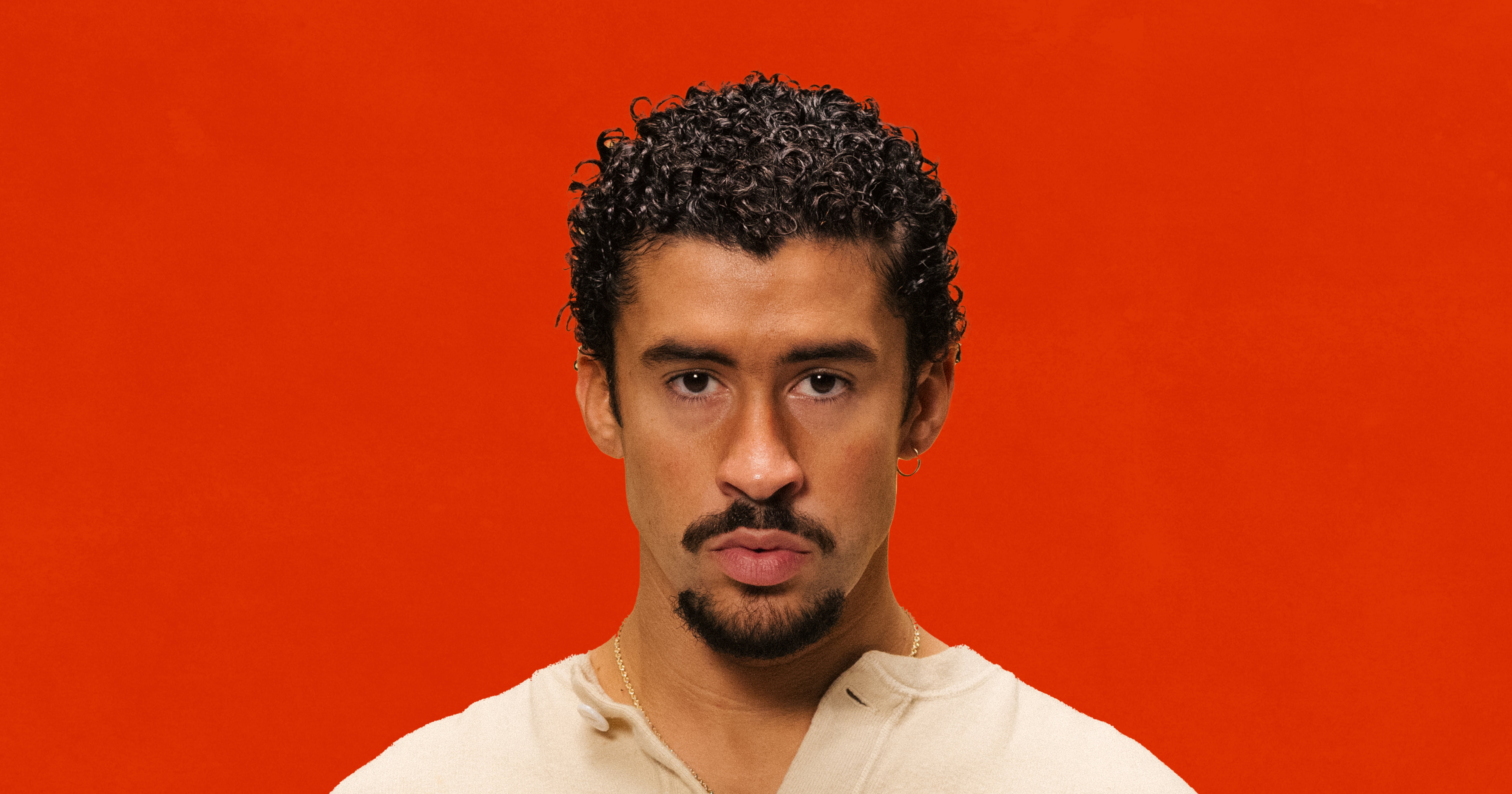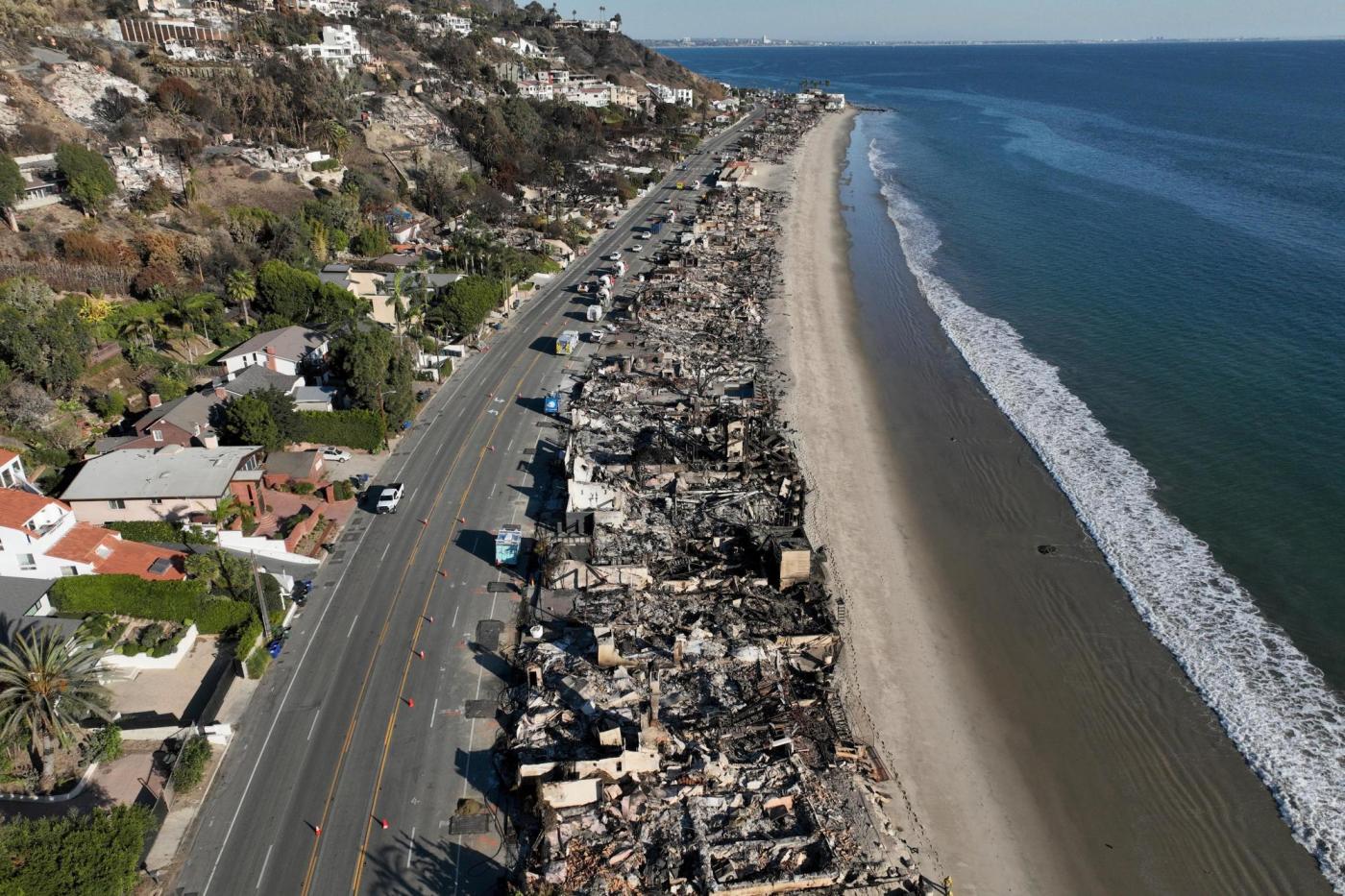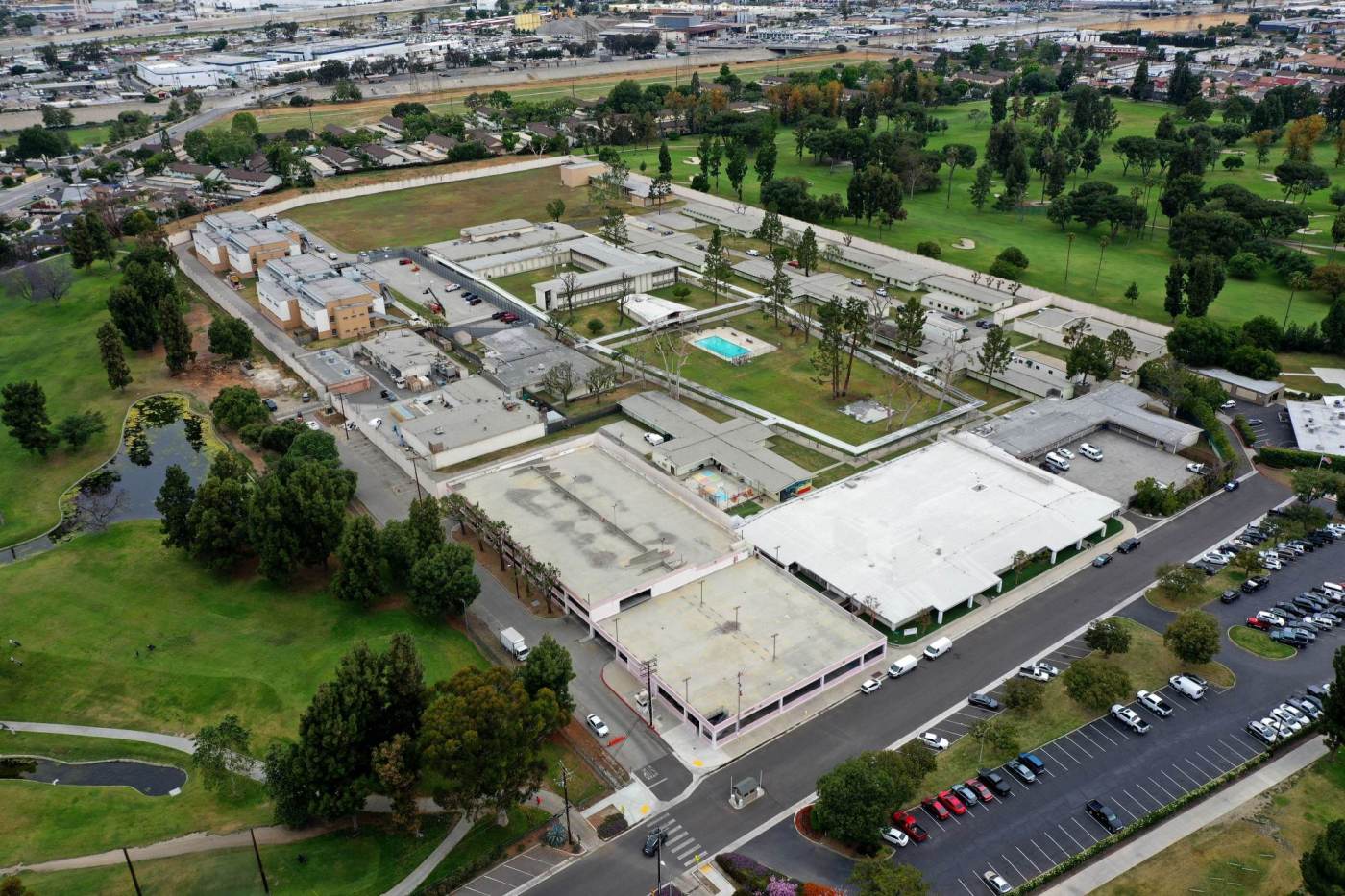Why Kamala Harris could run for California governor and bypass another White House bid
Why Kamala Harris could run for California governor and bypass another White House bid
By MICHAEL R. BLOOD
LOS ANGELES (AP) — Many of Kamala Harris’ supporters and detractors alike think she’d have better odds running for California governor rather than president a third time.
There are several reasons for Harris to make a bid to replace term-limited Gov. Gavin Newsom. She would immediately become the early front-runner instead of entering a presidential primary with a dozen or more serious contenders. No other candidate in California could match her résumé of having served as San Francisco district attorney, state attorney general, U.S. senator and vice president.
Beyond being expected to make a decision by the end of summer, Harris said little about her future. She told a crowd in Orange County in April: “I’ll see you out there. I’m not going anywhere.”
Newsom has predicted that Harris would top the field in a contested primary but added, “if she runs.”
To run for governor, “you have to have a burning ‘Why?’ ” Newsom said on the “Next Up with Mark Halperin” podcast.
“And if you can’t enunciate that, the answer is ‘No,’” Newsom added. “Why the hell would you want this job?”
Here are some reasons why she might want it — and why she might not. Her office did not respond to requests for comment for this story.
Pro: She can skip a fractious 2028 primary
Harris would have to convince national Democrats that she’s the face of the party’s future, despite losing to President Donald Trump last fall. She’s also tied to former President Joe Biden, whom Democrats are increasingly criticizing as new books drive further discussion about his age and physical and mental readiness during his time in office.
The 2028 presidential contest is expected to attract a large field, likely to include Newsom. Any candidate will have to unify a fractious Democratic Party with low approval ratings and struggling to slow Trump’s agenda in Washington.
Democratic consultant Bill Burton, who was national press secretary for former President Barack Obama’s 2008 campaign, said Harris would enter a presidential primary with a proven fundraising network, strong recognition with voters and the experience of operating in a Trump-fueled media environment.
But the looming question for Democrats is likely to be, “Who is the best person to stand up to the MAGA movement and exhibit a strength that is going to need to be really formidable?” Burton said.
Could Harris make that case? Some think her time has passed.
“She’s had her chance,” Adam Green, co-founder of the Progressive Change Campaign Committee, said in a statement.
“Voters want authentic outsiders who will shake up our broken political system and challenge an economic status quo rigged for billionaires against working people,” Green added. “That’s why Kamala Harris lost, and it’s why Democrats must turn elsewhere for leadership.”
Pro: California governor might be a safer bet
Harris calls herself a proud daughter of California, and after serving as vice president and in the Senate, she doesn’t need to chase another title. That said, California is one of the world’s largest economies by itself, and its governor becomes, by default, a national figure.
She would most likely run as a proven hand with the experience to lead California’s tussles with Trump — the state is known as the epicenter of the so-called Trump resistance — while dealing with its many problems, among them homelessness and a punishing cost of living.
In her San Francisco speech last month, she said the nation was witnessing a “wholesale abandonment” of American ideals under Trump.
The contest to replace Newsom in California is crowded, with leading candidates including former U.S. Rep. Katie Porter, former Los Angeles Mayor Antonio Villaraigosa and former Biden administration health secretary Xavier Becerra.
It’s expected that at least some of her rival Democrats would bow out rather than compete against her, including Porter, who in 2012 was appointed by then-attorney general Harris to be the state’s independent bank monitor in a multibillion-dollar nationwide mortgage settlement.
Democratic consultant Roger Salazar, who was a delegate in the party’s 2024 presidential convention, said Harris would stand better odds in a race for governor in her home state.
With multiple election wins in California, “there is just more certainty,” Salazar said. “I think she’s got a leg up right now, but this race hasn’t solidified” with the primary more than a year away.
Con: Will voters welcome her back?
How will voters view her? As a favorite daughter of California returning home? Or a two-time presidential also-ran looking for a soft landing?
Republican consultant Kevin Madden, who was a senior adviser to Mitt Romney’s presidential campaigns in 2008 and 2012, was dubious about her chances in either race. It’s unusual for a candidate to capture the presidency after two losses — Biden was one example.
As for governor, “the California electorate is about as ideal as it gets for Harris, but nothing about her current electoral record indicates that primary or general election candidates should be scared off,” Madden added.
Con: She won’t necessarily run against a Republican in November
Unlike many other states, California doesn’t automatically advance a Democrat and a Republican to the November election.
The state’s open primary system has tormented many candidates — critics call it the “jungle primary.” All candidates appear on a single ballot, regardless of party, and the top two vote-getters advance to the general election.
The system can lead to strategic gambles. Last year’s U.S. Senate race included three prominent Democrats — U.S. Reps. Adam Schiff, Porter and Barbara Lee. Schiff ran TV ads in the primary that spotlighted Republican Steve Garvey, presumably a weaker contender in the general election than either of his Democratic rivals. Garvey ended up advancing to November, where he was soundly defeated by Schiff, who now holds the seat.
But Harris could come out of the June 2, 2026, primary facing a Democrat who ends up criticizing her in much the same way she’d have faced in a 2028 bid.
San Francisco-based Democratic consultant Eric Jaye recalled another Californian who, after losing a presidential race, sought to rebound in his home state: Richard Nixon. After being narrowly defeated in the 1960 election by then-Sen. John F. Kennedy, Nixon lost the 1962 race for California governor. (Of course, Nixon ended up winning the White House six years later.)
While Harris is a favorite with Democrats, a slice of the electorate has deeply negative views of her, Jaye noted. That doesn’t leave her with many voters to gain, and the Democratic primary vote could be divided among multiple candidates.
“I don’t think it’s in any way guaranteed that she would win,” Jaye said. “She’s a highly polarizing figure.”
Con: Does she want to go to Sacramento?
Harris would be coming home to a long list of problems.
The homeless crisis is playing out daily on the streets of Los Angeles and other big cities. Newsom this month said the state is facing a $12 billion deficit and he wants to freeze enrollment in a state-funded health care program for immigrants living in California without legal status. There is a home insurance crisis and a continuing threat from destructive wildfires.
And as the last election made clear, Republicans will attempt to saddle her — fairly or not — with her home state’s reputation for confiscatory taxes, gas prices and utility bills, seven-figure home prices and liberal social policies.
Comments 0
Most Read
Recommended Post
Gogolook launches news wall feature to Whoscall App





















Leave a Comment